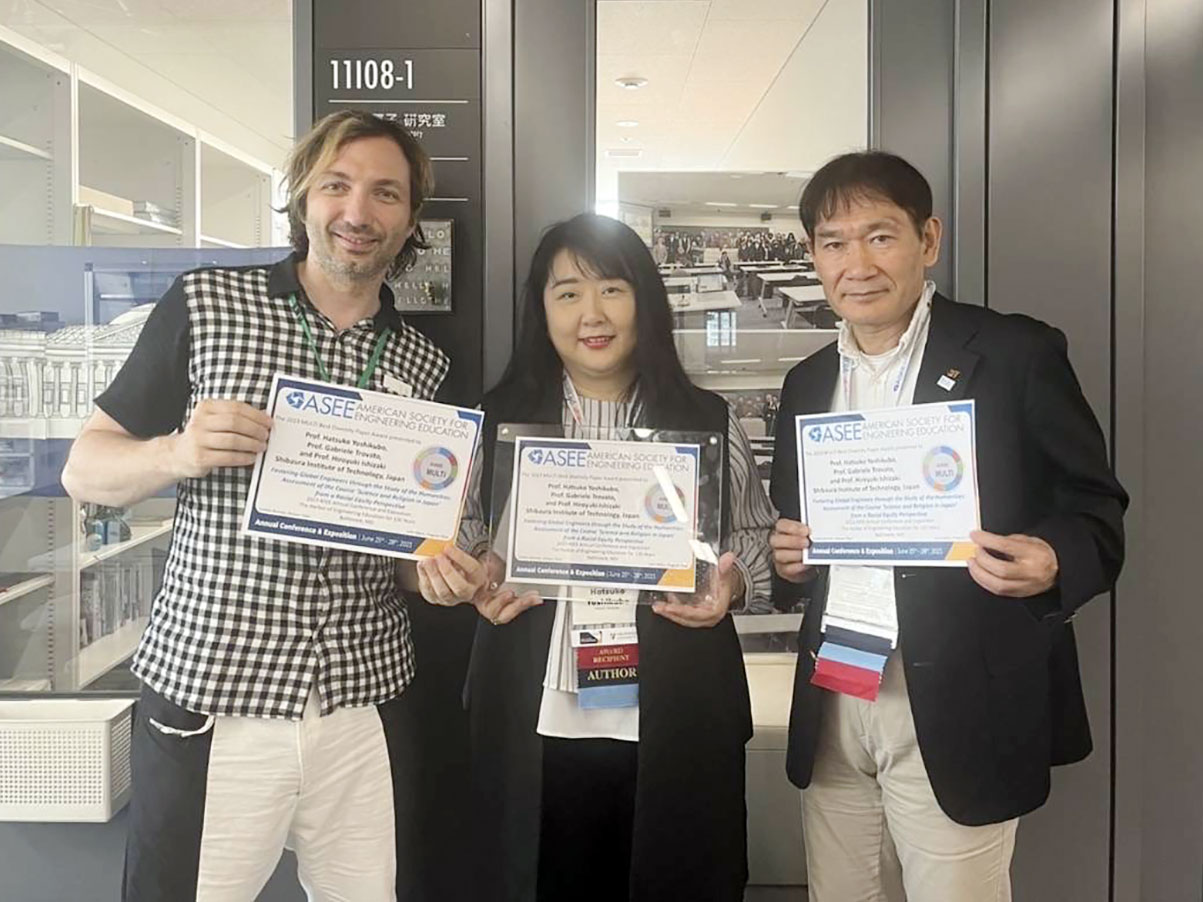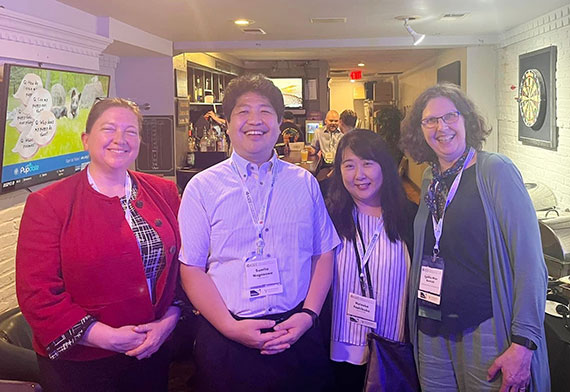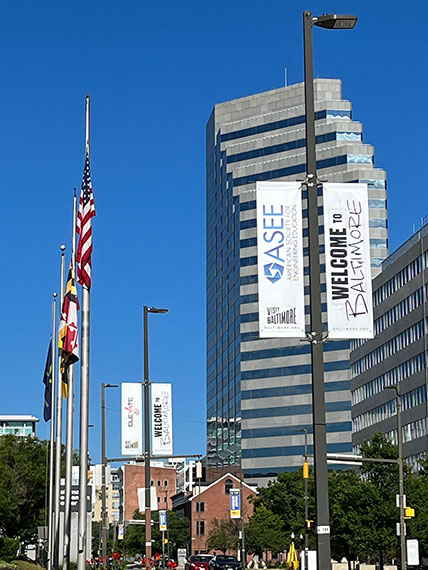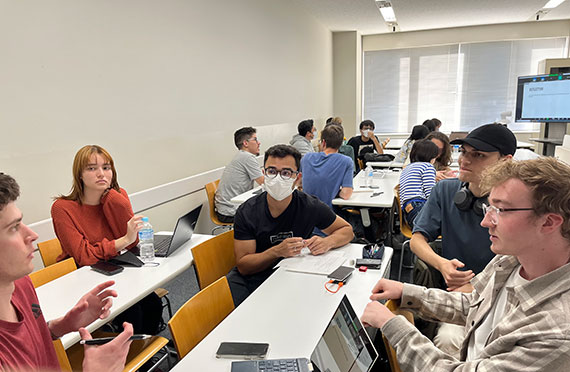Associate Professor Dr. Hatsuko Yoshikubo, Associate Professor Dr. Gabriele Trovato, and Visiting Professor Hiroyuki Ishizaki have received “The 2023 MULTI Best Diversity Paper Award” at the 130th Annual Conference of the ASEE
- Engineering
Associate Professor Dr. Hatsuko Yoshikubo (Innovative Global Program, College of Engineering),
Associate Professor Dr. Gabriele Trovato (Innovative Global Program, College of Engineering),
Visiting Professor Hiroyuki Ishizaki (Malaysia Office, Shibaura Institute of Technology)
【Conference Name】
The 2023 American Society for Engineering Education (ASEE) Annual Conference & Exposition
【Award】
The 2023 MULTI Best Diversity Paper Award
【Presentation Title】
Fostering Global Engineers through the Study of the Humanities: Assessment of the Course 'Science and Religion in Japan' from a Racial Equity Perspective

▲ A photo taken in front of the lab with co-authors Associate Professor Dr. Gabriele Trovato (Innovative Global Program) and Visiting Professor Hiroyuki Ishizaki (Malaysia Office).
【Purpose of the Research】
As a professor of humanities in the Innovative Global Program (IGP) in the College of Engineering at Shibaura Institute of Technology (SIT), I have always been interested in quantitatively examining the impact on students' learning of introducing humanities modules within the framework of an engineering education syllabus. This paper investigates the learning outcomes of students who took the 'Science and Religion in Japan' course in Academic Year 2023. The IGP is an English degree program running within the College of Engineering at SIT. In addition to being a popular module with IGP, this course which covers some lesser-known parts of Japanese history has also been well received by international students at SIT. Hence, this research also has the effect of measuring the learning outcomes of international students. The 'Science and Religion in Japan' course takes an interdisciplinary approach combining humanities, philosophy, and engineering modules. The class comprises students mainly from Europe, Asia, and South America, and therefore class discussion is conducted through a racial equity lens with students participating in the conversation from diverse standpoints. In addition, the course is designed in a way that challenges students' logical thinking and creativity, offering an at-times critical perspective on the conventional view of Japanese history.
【Research summary】
SIT aims to foster engineers with 'global competence'. Global competence refers to the skills necessary to address the sorts of highly complex issues that engineers will encounter in their careers, within the context of our globalized society. We used the MGUDS-S assessment tool to examine the global competence scores of students before and after the program; the results observed show that participants’ average global competence scores increased after taking the ‘Science and Religion in Japan’ course.
【Future Prospects】
We aim to promote broader collaboration between the disciplines of humanities and engineering, specifically by developing a 'Collaborative Online International Learning (COIL)' program to run as part of the Innovative Global Program at SIT.

▲ A Photo with Dr. Lynn Albers (ASEE Board of Director), Dr. Cynthia Barnicki (ASEE MULTI Division Chair), and Professor. Dr. Sumito Nagasawa (Department of Engineering Science and Mechanics)

▲ A photo taken in front of the Baltimore Convention Center, the venue for the 2023 ASEE Annual Conference.

▲ A photo taken of students participating in the 'Science and Religion in Japan' course.
Contact
Planning and Public Relations Section
3-7-5 Toyosu, Koto-ku, Tokyo 135-8548, Japan (2F the Centennial Main Building, Toyosu Campus)
TEL:+81-(0)3-5859-7070 / FAX:+81-(0)35859-7071
E-mail:koho@ow.shibaura-it.ac.jp